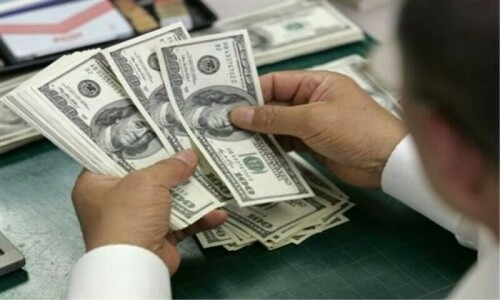KARACHI: More than 50 per cent of foreign direct investment (FDI) has been landing in the power sector of Pakistan, mostly for coal power projects.
Data from FY18 to Nov 2023 shows that foreign investments were limited to a few sectors like finance and manufacturing, while the biggest attraction remains coal power projects.
Despite being the biggest victim of climate change, Pakistan seems unable to avoid coal power projects, which are mostly funded by China.
On March 23, the PDM government inaugurated two coal-fired power plants — 1,320MW Shanghai Electric and the 330MW Thal Nova power plants — in Tharparker.
The two plants would annually generate 11.24 billion units of low-cost electricity. With a direct investment of $3.53bn in these projects, the production of coal-based electricity in Thar will increase to 3,300MW.
Since FY18, the inflows for the power sector were $3.890bn, and in the first five months of the current fiscal year FY24, it received $263.9 million, making the total inflows $4.154bn during this period.
Out of the total inflows for the power sector, $2.822bn were invested in coal power projects, accounting for 55pc of the total investment in the power sector, while the rest was for thermal and hydel powers.
Most of these projects were invested in by China under the China-Pakistan Economic Corridor (CPEC). Shanghai Electric Power Company Limited is the executing agency for the Thar power projects.
The government claims the total value of Thar coal reserves is $25 trillion, which is highly attractive for the country struggling to get rid of foreign loans.
The country has a foreign debt of about $128bn, and it has to pay back a huge amount to service the debts. Pakistan needs about $24.5bn for debt servicing (including the principal amount) this fiscal year.
Finance Minister Shamshad Akhtar recently said the country must increase exports to come out of the poor economy loaded with debts.
“What is more important is to identify how many attractions we have for foreign investors and what extra we have to export for higher earnings,” said Aamir Aziz, an exporter of textile finished products.
He said that the current economic policy is against exports as the import of raw materials is extremely difficult, and the cost of doing business is rising with high gas and electricity prices. He added that while coal power could be cheaper, the industry has not yet received cheap electricity to lower their cost of production.
Published in Dawn, December 23rd, 2023














































Dear visitor, the comments section is undergoing an overhaul and will return soon.